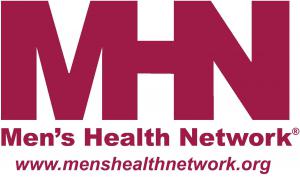Revisiting Federal Recommendations for Testicular Self-Examinations
American Journal of Men’s Health publication evaluates current practices for Testicular Cancer
WASHINGTON, DC, UNITED STATES, October 25, 2022 /EINPresswire.com/ -- Experts in testicular cancer, urology, and men's health, including Men's Health Network's Vice President Ana Fadich-Tomsic co-authored a journal article entitled “A Call to Action1 to Review the USPSTF’s Recommendation for Testicular Self-Examination” published on October 10, 2022, in the American Journal of Men’s Health.Testicular Cancer is a malignant cancer of top concern among the American medical community in addition to men and their families. Currently, Testicular Cancer is of highest prevalence among men who are between the ages of 20-34 and it is predicted by the American Cancer Society2 that there will be 9,910 new cases and 460 deaths attributed to Testicular Cancer in 2022 alone. Despite these numbers the United States Preventive Services Task Force (USPSTF) has given Testicular Self-Examinations (TSE) in asymptomatic males a “D” rating, meaning that this service is not recommended for implementation.
The topic of this new article is a collective plea directed at the USPSTF to reevaluate the efficacy of TSE. The reasoning behind this is understood by three factors; first, the suggested time between reviews is 7 years past due. Second, the current rating of TSE does not meet the guidelines set by the USPSTF, and third, “emerging benefits on the harm/benefit corollary”.
The article highlights the fact that there has not been a formal review of TSE’s effectiveness at reducing mortality rates of Testicular Cancer in 12 years, which happens to be diametrically opposed to the current USPSTF review guidelines which state that a review should occur every 5 years (Institute of Medicine, 20113). Despite urgent calls from the medical community to establish a new review, the USPSTF has remained silent on the issue.
Furthermore, this article presents an important critique of the recommended standards put forth by the USPSTF. The authors argue that there is an overall lack of medical research conducted on the effectiveness of TSE and therefore a lack of evidence of the benefits of the practice. This does not mean TSE is harmful or ineffective, rather USPSTF should alter their recommendation from “D” to “I,” conveying the understanding of the insufficient amount of evidentiary research on the topic.
The authors understand that the biggest barrier to changing the USPSTF recommendation is the strained availability of resources that would allow for more research into streamlining of TSE.
Due to the high incidence rate of Testicular Cancer among young men more resources must be allocated to combat Testicular Cancer and provide education and treatment programs for the healthcare sector and for men prior to diagnosis.
For more information on testicular cancer and other men’s health issues, please visit TesticularCancerAwarenessMonth.com and GetItChecked.com
Men's Health Network (MHN) is an international non-profit organization whose mission is to reach men, boys, and their families where they live, work, play, and pray with health awareness messages and tools, screening programs, educational materials, advocacy opportunities, and patient navigation. Learn more about MHN at MensHealthNetwork.org follow on Twitter @MensHlthNetwork and Facebook at facebook.com/menshealthnetwork. Consider donating to MHN at menshealthnetwork.org/donate.
James Wallace
Men's Health Network
+1 202-543-6261
communications@menshealthnetwork.org
1 https://bit.ly/3TzMrXz
2 https://bit.ly/3TWSCES
3 https://bit.ly/3Tzk8Zm

